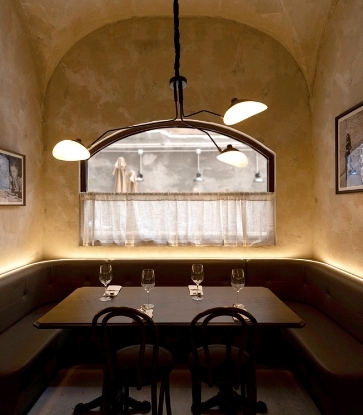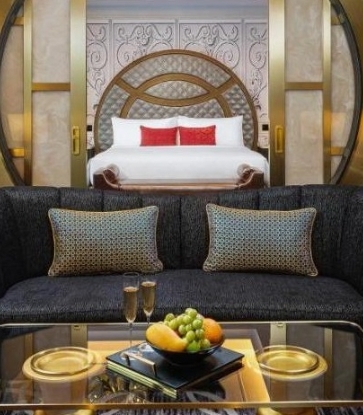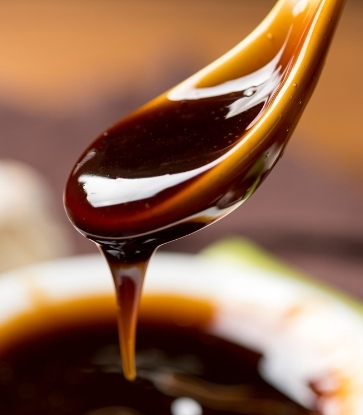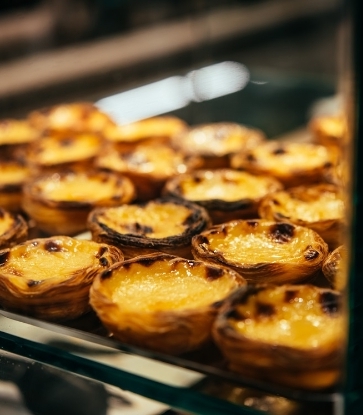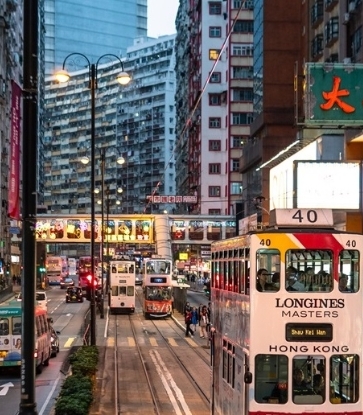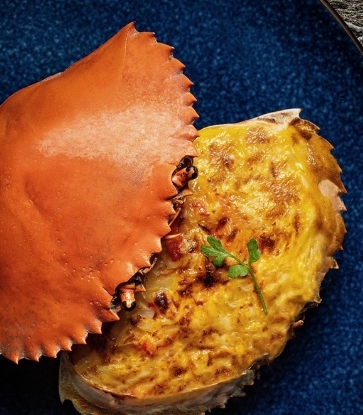While sustainability is a buzzword that is catching on in most kitchens today, it is an ethos that legendary French chef Joël Robuchon and his restaurant empire around the world had already subscribed to decades ago.
Robuchon au Dôme’s Executive Chef Julien Tongourian, who was a disciple of Joël Robuchon for 20 years, said that even as the Robuchon group of restaurants rapidly expanded worldwide — and was earning a galaxy of MICHELIN stars along the way — Robuchon himself was already consistently advocating for a sustainable approach to ingredient sourcing.
For instance, chef Robuchon would personally insist that his close collaborator, Fleury Michon, a leading French agri-food supplier, grow carrots locally instead of importing frozen ones for his restaurants in France, all with the aim of reducing the freight of products by air, thereby saving on cost and carbon footprint.
“The philosophy is to seek the freshest ingredients you can find, in your market, whether we are in Paris, Bordeaux, Monaco or in Asia,” says Tongourian, who joined Robuchon au Dôme in 2015 as its chef de cuisine after working in Robuchon’s restaurants in France and Asia. Since joining, chef Tongourian has successfully retained three MICHELIN stars at Robuchon au Dôme for an impressive 14 consecutive years.
Sustainably sourcing fresh ingredients closer to home
At Robuchon au Dôme today, chef Tongourian has taken a similarly responsible approach to cooking by using sustainable ingredients, and sourcing them closer to home whenever possible.“When I first arrived in Macau eight years ago, I went straight to the market to learn about the local ingredients,” recalls Tongourian. “Mr Robuchon always said: If you are going to make a grand meal, you have to make it simple. But to make something look simple is actually very complicated. You need the best quality ingredients and the top equipment."
Organic vegetables, fruits, fish and seafood that have been responsibly grown or obtained from licensed farms, fishermen and food suppliers from Macau or other nearby countries in Asia. Vegetables such as carrots and onions are grown specifically for the restaurant by local farmers to ensure they meet chef Tongourian’s exacting standards, and only free-range lamb and eggs are used in the restaurant.
“We keep the same philosophy and recipes from France, but we update them with ingredients from sources closer to us for their freshness, and because they are what the guests here like,” says Tongourian.
French beef has been swapped out for Japanese wagyu, for their quality and their popularity among Asian palates. Local seafood is also now a highlight on the menu at Robuchon au Dôme. For example, a local red grouper fish is served salt-baked in rock salt to intensify the flavours of the sea, and Chinese hairy crabs take a starring role in a white truffle pasta throughout the autumn months.

Nothing goes to waste
While many tend to associate fine dining restaurants with excess, chef Tongourian believes otherwise.Ingredients are ordered in small batches to ensure they are of the freshest quality, reducing the chance of leftovers and wastage. “We never keep our fridge stocked with ingredients. Yes it’s a challenge for our team to have to work from scratch with new ingredients that arrive every morning, but that’s also how we ensure we get the best flavours from our produce.”
While the team uses only the most premium ingredients and prime meat for their dishes, the remainder of the ingredients are not thrown out. Instead, they are saved and used to create more humble dishes in SJM’s more casual restaurants. “That’s the benefit of being part of a larger group with several food and beverage outlets, and one with a strong vision on sustainability,” says the chef.
Reducing plastic and single-use materials
Over the past few years, chef Tongourian has also started working with his food suppliers to receive his ingredient deliveries in reusable boxes, instead of in single-use styrofoam or wooden boxes that end up in the garbage post-delivery. “Today, I’m proud to share that no eggs arrive in our restaurant on plastic trays. We use more than 500 eggs per day, if we continued with that practice, we will be sending lots of plastic to the bins everyday,” says chef Tongourian.While not all the suppliers were on board initially, many have come round to his requests, the chef shares. “It’s very new to many, but we need to start this conversation, and take it step by step, even if we have to start from zero.”
“My kids are constantly reminding me to care for our environment. It is the new generation, they demand this, and I want to do this for them and their future,” adds the father of two teenagers.
The restaurant also uses reusable silicon covers instead of single-use cling wrap that is liberally used in many other kitchens, and there are signs put up throughout the kitchen and staff recreation areas to remind his team to save water and be environmentally conscious.
Chef Tongourian also adheres to yet another Robuchon philosophy: reducing the number of industrially produced additives used in dishes. For example, to create the restaurant’s signature dish of Sologne Imperial caviar in lobster jelly with cauliflower cream, the team boils veal trotters for hours to extract their natural gelatine, instead of using synthetic gelling agents.
“In a busy kitchen, you don’t always have time to think about these details, but it is an important message that needs to get across,” he adds. “And in the end, it’s win-win for everyone. Our company and our suppliers save on costs, and the earth benefits. What is good for the environment can also be good for business.”
This approach is further supported by the positive and innovative attitude towards sustainable development of by parent company, SJM. SJM has a three-pillar green framework – “Green Facilities”, “Green Hospitality” and “Green Gaming’ – which serves as the foundation for the company’s Environmental Protection Commitment.
As an example of SJM’s “Green Facilities” efforts, the new Grand Lisboa Palace was recently awarded the LEED Silver Certification by the US Green Building Council. With respect to “Green Hospitality”, SJM remains committed to delivering sustainable experiences for guests and in 2021 formally endorsed a “Sustainable Procurement Policy”, where SJM fully supports local SMEs and engages in sustainable sourcing with suppliers. As to “Green Gaming”, SJM is committed to operating its casinos in a waste-free and sustainable manner. All of these efforts by SJM impact every aspect of the company’s operations in a positive way.

A visionary for the next generation
The embrace of a more sustainable future at SJM is aligned with Joël Robuchon’s reputation for always staying ahead of his time, says chef Tongourian.Chef Tongourian reflects back to 2002 – more than two decades ago – when he was demi-chef de partie during the opening of the first L’Atelier de Joël Robuchon in Paris. At that time, chef Robuchon radically changed the codes of the kitchen by introducing an open kitchen concept, allowing his young chefs to directly interact with diners.
“We were excited, but we had to pay much more attention to cooking and facing customers at the same time,” chef Tongourian recalls. “With the concept of the Atelier, he not only opened the eyes of customers, but also democratized haute cuisine and made professional chefs shine.
“He was a visionary and precursor. His humbleness and his passion for cooking will be remembered forever,” chef Tongourian says.
“Joël Robuchon had a profound respect for nature, for his produce, his guests and his culinary team and it is my duty to carry on and pass his culinary knowledge to the coming generations,” says Chef Tongourian. “After eight years in Macau, I don’t only see myself as a chef. I am a teacher. I want to pass on this legacy to my staff.”way to build a sustainable future.
READ MORE: The Secret to SJM’s Star-Studded Success in Gastronomy
This post is brought to you in partnership with SJM.








